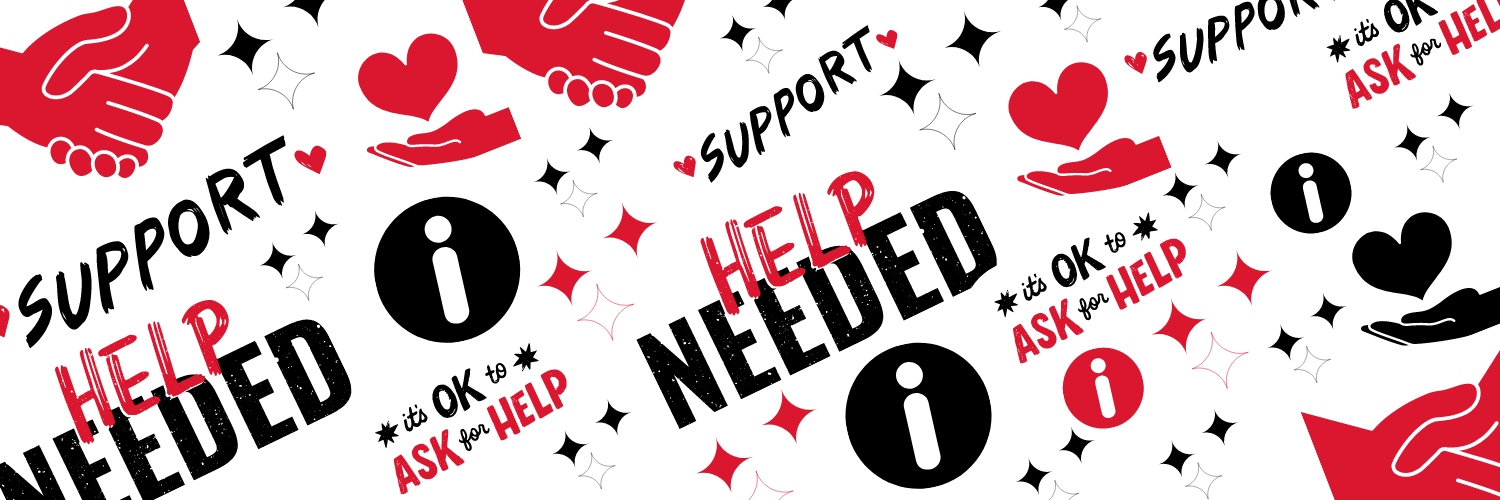Support Contacts for Gambling Problems
Help is always within reach. With our curated list of Problem Gambling Contacts, you’ll find support that’s fast, free, and judgment-free. Whether you’re looking for counseling, blocking tools, or just someone who understands, these organizations are ready to help. BonusManiac shares these resources so that no player has to go it alone.

Table of Contents
Understanding Problem Gambling
What is Problem Gambling?
Problem gambling, also known as gambling addiction or compulsive gambling, occurs when individuals cannot control their urge to gamble despite negative consequences. This addiction can manifest in various forms, from frequent betting on sports to persistent use of online casinos. It is crucial to recognize that problem gambling is a behavioral addiction, similar to substance abuse, where the brain’s reward system is affected, leading to a continuous cycle of betting and loss.
Effects on Individuals
The impact of problem gambling on individuals can be severe and multifaceted. Financial difficulties are one of the most immediate and visible consequences, as gamblers often find themselves in mounting debt due to their habit. Beyond financial strain, gamblers may experience significant emotional and psychological stress, including anxiety, depression, and feelings of helplessness. These mental health issues can exacerbate the addiction, creating a vicious cycle that is challenging to break without professional help.
Impact on Families
The effects of problem gambling extend beyond the individual to their families and loved ones. Relationships often suffer as trust is eroded by deceit and financial instability caused by the gambler’s behavior. Family members may also experience emotional distress, feeling powerless and frustrated by their inability to help. Children, in particular, can be adversely affected, facing neglect or experiencing a disruptive home environment. Recognizing these impacts is essential in seeking comprehensive support that addresses not only the gambler but also their family members, ensuring a holistic approach to recovery.
Problem Gambling: Global and Local Help Resources
Worldwide Help
For global support, numerous organizations offer help for problem gambling, including 24/7 helplines, online counseling, and educational resources. These services provide both immediate and long-term assistance to individuals worldwide. By connecting with these resources, individuals can access vital support systems to regain control over their gambling habits and lead healthier lives.
Gamblers Anonymous is a well-known international organization providing multi-lingual resources for individuals struggling with compulsive gambling. They offer support through meetings held online, by phone, and in-person across the globe, mirroring the structure of Alcoholics Anonymous. GA hosts meetings in over 60 countries, including diverse locations such as Russia, Finland, Australia, Denmark, France, and South Africa. These meetings provide a confidential and supportive environment for individuals to share their experiences and seek help.
- Philippines: Contact GA Philippines at +639173062232 or email [email protected] for support and meeting information.
- Australia: Access local meetings and support via the GA Australia website or contact the national helpline at 1800 858 858 for confidential assistance.
- South Africa: Reach out to regional hotlines in Gauteng (060 624 7140), KZN (083 783 5715), and Western Cape (079 368 4477) or visit the GA South Africa website for more details.
Europe
In Europe, many organizations offer specialized support tailored to different countries and languages. These groups provide localized helplines, counseling services, and self-exclusion programs to help individuals struggling with gambling addiction. European support networks are well-equipped to handle the unique cultural and legal aspects of gambling in various countries, ensuring that help is both accessible and relevant. We always advise you to check your local market for help. Here you can find our list.
- United Kingdom: 808-8020-133 – GamCare
- France: 09-69-39-55-12 – SOS Joeur
- Belgium: 0800-35-777 – Gokhulp
- Switzerland: 041-367-48-47 – Careplay
- Italy: 800-558-822 – Gioca Responsabile
- Germany: 0800-0776611 – Glücksspielsucht
- Netherlands: 0800-22-777-22 – Agog
- Sweden: 020-81-91-00 – Stödlinjen
- Finland: 0800-100-101 – Peluuri
- Denmark: 70-22-28-25 – StopSpillet
Canada
Canada offers extensive support services for problem gambling through various organizations nationwide. These include confidential hotlines, online assistance, and face-to-face counseling tailored for Canadians. Additionally, many provinces have specific self-exclusion programs for gambling venues. Canadian organizations are committed to providing thorough support to those affected by gambling addiction, ensuring they have the necessary resources for recovery.
- Alberta: 1-866-461-1259 – AGLC
- British Columbia: 1-888-795-6111 – British Columbia Partnership for Responsible Gambling
- Manitoba: 1-800-463-1554 – Addictions Foundation of Manitoba
- Ontario: 1-866-531-2600 – Connex Ontario
USA
In the USA, there are many national and state-specific organizations dedicated to assisting those with gambling issues. These groups provide a variety of services, such as helplines, online resources, and support groups. Many states also offer self-exclusion programs to help individuals steer clear of gambling venues. By utilizing these resources, Americans dealing with gambling addiction can find the necessary support to start their recovery journey and regain control over their lives. Here is our full list.
- Arizona: 1-800-777-7207 – Arizona Council on Compulsive Gambling
- Connecticut: 888-789-7777 – Connecticut Council on Problem Gambling
- Florida: 888-ADMIT-IT – Florida Council on Problem Gambling
- Indiana: 800-994-8448 – Indiana Council on Problem Gambling
- Iowa: 1-800-BETS-OFF – Your Life Iowa
- Louisiana: 1-877-770-7867 – Louisiana Association on Compulsive Gambling
- Maine: 211 – Maine Council on Problem Gambling
- Massachusetts: 1-800-GAM-1234 – Massachusetts Council on Gaming and Health
- Michigan: 1-800-270-7117 – Michigan Gaming Control Board
- New York: 1-877-8-HOPENY – New York Council on Problem Gambling
In addition to this, in the USA, the National Problem Gambling Helpline offers centralized, 24/7 confidential support across most states. You can reach this service by calling 1-800-GAMBLER or 1-800-522-4700, sending an SMS to 800GAM, or visiting their chat. This helpline connects you to local health and government organizations for assistance.
LATAM
Latin America has a growing network of organizations addressing problem gambling. These groups offer essential services like helplines, counseling, and educational programs in multiple languages to support the region’s diverse population. By contacting these organizations, individuals in LATAM can find the help they need to manage gambling issues and achieve a healthier, more stable future. You can find our list below.
- Argentina: 0800-444-4000 – Loteria de la Provincia
- Chile: 600-360-77-77 – Salud Responde
- Colombia: 1-800-GAMBLER – Coljuegos
Problem Gambling: Support Services Offered
Anonymous Counseling
One of the primary services offered by problem gambling organizations is anonymous counseling. This service allows individuals to speak with trained professionals without revealing their identity, providing a safe space to discuss their gambling issues. Counselors can offer emotional support, practical advice, and strategies for managing gambling urges. This anonymity encourages more people to seek help, reducing the stigma associated with problem gambling and ensuring that individuals receive the support they need.
Self-Exclusion Programs
Many problem gambling organizations provide self-exclusion programs, which are designed to help individuals voluntarily ban themselves from gambling establishments and online gambling sites. By enrolling in these programs, individuals can limit their access to gambling venues, thereby reducing the temptation to gamble. These programs are a crucial step in regaining control and preventing further financial and emotional harm. Self-exclusion can be tailored to specific needs, whether for a set period or indefinitely, and can include multiple venues or platforms.
Practical Tools for Responsible Gambling
Organizations dedicated to helping problem gamblers often provide a range of practical tools designed to promote responsible gambling. These tools include budgeting aids, time management strategies, and apps that track gambling habits. They can also provide educational materials on the risks of gambling and tips for recognizing the signs of addiction. By utilizing these resources, individuals can develop healthier gambling habits and make informed decisions about their gambling activities.
Support Groups
Support groups, such as those organized by Gamblers Anonymous, offer a community-based approach to dealing with gambling addiction. These groups provide a platform for individuals to share their experiences, challenges, and successes with others who understand their struggles. Regular meetings, whether in person, online, or by phone, foster a sense of community and accountability, which can be incredibly beneficial for maintaining long-term recovery.
Financial Counseling
Problem gambling can lead to significant financial difficulties. Many organizations offer financial counseling services to help individuals manage their debts and regain financial stability. These services can include debt management plans, budgeting advice, and negotiation with creditors. Financial counselors work with individuals to create a realistic plan for addressing their financial issues, providing a crucial step toward recovery.
Educational Programs
Raising awareness about the risks of gambling and providing education on responsible gambling practices are key components of the support offered by these organizations. Educational programs can be targeted at various groups, including young people, adults, and the elderly. These programs aim to prevent gambling addiction by informing individuals about the potential dangers and teaching them how to gamble responsibly. Schools, community centers, and online platforms often host these educational initiatives.
Crisis Intervention
For those experiencing a gambling-related crisis, many organizations offer immediate intervention services. These can include 24/7 hotlines, chat services, and emergency counseling. Crisis intervention is crucial for individuals who are at risk of significant harm due to their gambling behavior. By providing immediate support and resources, these services help individuals stabilize their situation and begin the process of recovery.
Tailored Support for Families
Gambling addiction affects not only the individual but also their loved ones. Many organizations offer tailored support for families, including counseling and educational resources. These services help family members understand the nature of gambling addiction, cope with its impacts, and learn how to support their loved ones through recovery. Family involvement is often a critical factor in successful long-term recovery.
Alternative Resources for Support
Addiction Support Organizations
In addition to organizations specifically focused on gambling addiction, many general addiction support groups offer valuable resources for those struggling with gambling issues. Organizations such as Alcoholics Anonymous and Narcotics Anonymous have adapted their programs to include support for gambling addiction. These groups provide a structured approach to recovery, emphasizing peer support and a step-by-step process. By participating in these groups, individuals can benefit from a supportive community and proven recovery strategies that can be applied to gambling addiction.
Psychotherapy and Counseling
Psychotherapy, also known as talk therapy, is an effective treatment for gambling addiction. Licensed therapists and counselors can help individuals understand the underlying causes of their gambling behavior, develop coping strategies, and work through any co-occurring mental health issues, such as anxiety or depression. Cognitive-behavioral therapy is particularly effective for treating gambling addiction, as it helps individuals recognize and change harmful thought patterns and behaviors. Accessing psychotherapy can provide individuals with the professional support needed to achieve long-term recovery.
Online Support Communities
For those who prefer digital support, online communities and forums can be a valuable resource. Websites and apps dedicated to gambling addiction recovery offer forums, chat rooms, and virtual support groups where individuals can share their experiences and support each other. These online platforms provide anonymity and flexibility, making them accessible to a wide range of individuals. Additionally, many online communities offer resources such as self-help guides, educational materials, and links to professional services.
Legal Aid Services
Legal issues often arise from problem gambling, whether related to debt, criminal charges, or family disputes. Legal aid services can provide crucial support in these situations, offering advice and representation to help individuals navigate the legal system. Access to legal aid can ensure that individuals facing gambling-related legal issues receive fair treatment and the best possible outcomes. Many legal aid organizations offer free or low-cost services, making legal support accessible to those in need.
Supporting a Loved One
Recognize the Signs
The first step in supporting a loved one with a gambling problem is to recognize the signs. Look out for behaviors such as secretive gambling, lying about gambling activities, borrowing money frequently, or displaying signs of anxiety and depression. By being aware of these signs, you can identify when your loved one might need help.
Approach with Compassion
When you decide to talk to your loved one about their gambling problem, approach them with compassion and understanding. Avoid being judgmental or confrontational, as this can make them defensive. Instead, express your concerns calmly and let them know that you are there to support them. Use “I” statements, like “I feel worried when you gamble,” to avoid sounding accusatory.
Offer Support and Resources
Provide your loved one with information about resources that can help them. This might include contact details for local or national gambling helplines, support groups, and websites that offer educational materials. Encourage them to seek professional help, such as counseling or therapy, to address their gambling addiction.
Set Boundaries
It’s important to set clear boundaries to protect yourself and other family members from the negative impacts of gambling. This might mean refusing to lend money, not covering debts, or not lying to cover up their gambling behavior. Setting boundaries can help your loved one see the real consequences of their actions and may encourage them to seek help.
Encourage Healthy Activities
Encourage your loved one to engage in healthy, fulfilling activities that don’t involve gambling. This can include hobbies, sports, socializing with friends, or any other activities that can provide a sense of joy and accomplishment. By helping them find alternative ways to spend their time, you can reduce their urge to gamble.
Take Care of Yourself
Supporting someone with a gambling problem can be stressful and emotionally draining. It’s crucial to take care of your own well-being too. Make sure you have your own support system, whether it’s friends, family, or a support group for people affected by gambling addiction. Taking care of yourself ensures that you can be there for your loved one without sacrificing your own health.
Be Patient and Persistent
Recovery from gambling addiction is a long process that involves setbacks and challenges. Be patient and persistent in your support. Celebrate their progress, no matter how small, and encourage them to keep going even when things get tough. Your ongoing support can make a significant difference in their journey to recovery.
Seek Professional Advice
Sometimes, the situation might require professional intervention. Don’t hesitate to seek advice from professionals such as therapists, counselors, or organizations specializing in gambling addiction. They can offer guidance on the best ways to support your loved one and provide strategies for dealing with specific challenges.
Path to Recovery and Conclusion
Taking the First Step
Regaining control over your life begins with acknowledging that you have a gambling problem and seeking help. It’s important to remember that asking for help is a sign of strength, not weakness. Reach out to friends, family, or support organizations dedicated to helping those with gambling issues. By taking this crucial first step, you set the foundation for your recovery journey. Remember, many people have successfully overcome gambling addiction, and so can you.
Utilizing Available Resources
There are numerous resources available to help you on your path to recovery. These include helplines, counseling services, support groups, and online tools. Use these resources to build a support network and develop strategies for managing your gambling urges. Financial counseling can also help you address any debt or financial issues caused by gambling. Utilizing these resources will provide you with the guidance and support needed to regain control over your life.
Conclusion
Recovery from gambling addiction is a journey that requires patience, persistence, and support. Each step you take towards recovery is a victory. Embrace the support available to you and remain committed to your goal of leading a healthier, happier life. Remember, with determination and the right resources, you can overcome gambling addiction and reclaim control over your future.
Frequently Asked Question
Gambling Addiction
Of world population struggles with gambling addiction.
Gambling Participation
Individuals with gambling issues engage in online gambling worldwide.
Significant Financial Impact
Of affected individuals reporting gambling-related debts.
Mental Health Issues
Problem gamblers also experience anxiety and depression.
Was this article helpful?
Your feedback is important to us! By sharing your simple yet effective vote, you help us improve this article. Thank you for your contribution!
As the head of our compnay, Den lives and breathes online casinos. He’s the guy who’s played it all, seen every trend, and knows exactly what matters to players. His reviews, guides and tips aren’t just informed—they’re inspired by deep industry knowledge and a sharp instinct for what works. Den keeps it real, always aiming to help you feel confident and ready, no matter where you are on your gaming path.


